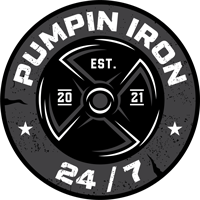Protein powder is a widely discussed supplement, often accompanied by advice that lacks evidence. While the internet can provide helpful information, it also spreads inaccurate and potentially harmful myths. This article aims to address and refute six prevalent misconceptions about protein powder that you might have encountered.
Myth 1: Dairy-based proteins are bad for you. Some individuals may experience gastrointestinal discomfort after consuming whey protein, leading them to believe that it is inherently harmful. However, this discomfort is typically linked to lactose intolerance. Whey protein is derived from milk during the cheese-making process, so those who are sensitive to lactose might experience discomfort similar to consuming other dairy products. For individuals without lactose intolerance, whey protein is generally safe and beneficial.
Myth 2: Plant-based protein is less effective than whey. Whey protein is often considered superior because it contains all nine essential amino acids, making it a complete protein. In contrast, plant-based protein powders may not always be complete proteins, depending on their source. For instance, only soy protein is complete among plant sources. However, blending multiple plant proteins can create a complete amino acid profile. Products like Plant Protein from various sources like pea, pumpkin, and brown rice can be just as effective as whey protein in supporting muscle growth and satiety.
Myth 3: Protein powder makes you bulky. There is a common misconception that consuming protein powder alone will lead to bulky muscles. In reality, muscle growth requires a combination of protein intake, exercise, and sufficient calories. Protein powder serves as a convenient supplement to meet daily protein needs, but it does not cause bulking on its own. Maintaining a balanced diet and proper exercise regimen are crucial factors in achieving muscle growth.
Myth 4: You need protein powder to build muscle. While protein powder is convenient for meeting daily protein requirements, it is not essential for muscle growth. Whole food sources such as lean meats, eggs, dairy, legumes, and nuts also provide ample protein necessary for muscle synthesis. Protein powders offer a concentrated source of amino acids that aid in muscle recovery and growth, particularly useful for individuals with higher protein needs or convenience preferences.
Myth 5: Protein powder is only for people who go to the gym. Protein is a fundamental macronutrient essential for various bodily functions beyond exercise. It supports growth, repair, and maintenance of tissues, organs, and vital systems throughout life stages. Whether you engage in physical activity or not, adequate protein intake is necessary for overall health and well-being.
Myth 6: Heating or cooking protein powder destroys it. Contrary to belief, heating or cooking protein powder does not diminish its nutritional value. Similar to cooking meat, protein powder remains stable and retains its amino acid content when used in baking or cooking. Incorporating protein powder into recipes can enhance their nutritional profile and add flavor without compromising its benefits.
By dispelling these myths, individuals can make informed decisions about incorporating protein powder into their diets, understanding its role and benefits beyond misconceptions.


Share:
The Importance of Rest in Your Fitness Routine
Determining Your Daily Protein Requirements